Have we considered how AI in movies could revolutionize filmmaking? We must ask ourselves: Is AI improving films, or is it rendering some methods of making films irrelevant? AI is revolutionizing the process of making films, but it’s also making others concerned that they’ll lose their jobs.
Key Takeaways
- AI is becoming a fundamental component in filmmaking and storytelling.
- The old-fashioned studios are struggling with technological progress.
- Artificial intelligence can enhance creativity and scriptwriting.
- There are ongoing debates about the ethics of AI in filmmaking.
- AI technology can personalize audience engagement effectively.
- The industry’s future hinges on balancing innovation with artistic integrity.
The Rise of AI in Filmmaking
The onset of AI in filmmaking is revolutionizing the way films are produced and exhibited. In the past decade, filmmakers have employed sophisticated algorithms to make their tasks simpler. This has revolutionized editing, casting, and even the extent to which a film will perform at the box office.
AI made a dramatic difference in movie editing. It can scan footage than traditional techniques, allowing editors to concentrate on the story. It is also used to select actors based on data to determine who will resonate with audiences.
Large players such as IBM and Adobe are driving this revolution with new technology. With the growth of AI, we have good and evil. We’re at a new frontier where technology and creativity intersect to revolutionize film forever.
Understanding AI: Making Sense of the Technology
As we learn about filmmaking, being aware of AI is the most important thing. AI turns film around, influencing everything from scripts to special effects. Understanding artificial intelligence makes us appreciate its presence in movies we love.
There are various kinds of AI, with each being applied differently in film. Machine learning improves systems with time, enhancing movie quality. Natural language processing aids writers in producing better dialogue and storylines.
Knowing AI allows us to harness novel filmmaking methods. These advances create novel means of storytelling and creating images.
AI in movies: Revolutionizing Scriptwriting and Storytelling
AI is revolutionizing scriptwriting and storytelling. It introduces novel tools for writers to craft compelling stories and characters. This combination of human imagination and AI presents thrilling possibilities for the world of cinema.
AI as a Writing Buddy for Writers
Platforms like ScriptBook and Final Draft are changing scriptwriting. They use algorithms to study successful scripts and offer templates for different genres. These tools help us come up with ideas and improve our plots.
They let us see how our stories might turn out, based on past data. This helps us make our stories better, working with AI.
Enhancing Creativity Through AI Algorithms
AI and human imagination together form new means to narrate stories. AI assists in developing characters, dialogue, and plot turns. It makes our scripts more engaging.
Through AI in scriptwriting, we discover a new method of working. AI is our inspiration, not a substitute. This collaboration allows us to experiment with new approaches and develop as writers.
How AI is Changing Visual Effects and Animation
AI is revolutionizing the world of film. Studios employ sophisticated AI to improve animation and speed. This allows them to produce fantastic visuals and animations that were difficult to accomplish previously.
The Application of AI in Animation Methods
AI creates realistic animations and makes them seem real. Imageworks and Pixar are some of the companies that employ AI to create lifelike characters and scenes. This enhances stories and makes them exciting and entertaining to watch.
The benefits are obvious:
- Greater efficiency in creating animations.
- Greater creativity for animators to experiment with new ideas.
- Greater realism in the way characters move and appear.
AI is transforming animation into a central aspect of storytelling. It converts stories into breathtaking images that capture people’s attention anywhere.
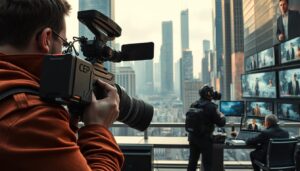
The Evolving Face of Film Production
Technology is revolutionizing the way we produce movies. It’s improving contemporary filmmaking. AI is now a component of the process, increasing efficiency and saving costs.
AI aids in planning, budgeting, and team management. This enables movie-making to be faster and more affordable. It also assists in creating more quality stories.
Technology is now being employed by the studios in making quicker decisions. This is part of the evolution of the film industry. The old-fashioned filmmakers must learn new tricks to remain in competition.
Embracing new technology can be very advantageous. It can simplify project management. It can also facilitate better storytelling and more accurate cost predictions.
- Greater efficiency in project management.
- Better storytelling abilities through insights from data.
- More precise budget estimates with the use of analytics.
This shift is both challenging and stimulating. Filmmakers who stick to traditional ways have to acquire the skill to operate with new technology. But they also have to remain creative.
The future of film will be a combination of new and old. This fusion will determine how we watch movies. It’s an age of tremendous change and possibility in the world of film.
AI Used in Movies: Increasing Audience Engagement
Producers and filmmakers are paying increased attention to audience engagement in the current cinema. They employ AI in connecting with the audience at an individual level. With this, they can personalize their content according to viewers’ tastes, thus the experience becomes optimized.
Personalization and Recommendation Algorithms
Personalization algorithms play a central role in discovering new movies and TV shows. Platforms such as Netflix and Hulu make use of our watching history to recommend content. This makes us entertained and faithful to these sites.
The more we watch what we like, the more we teach the studios what we prefer. They discover which genres and topics we enjoy. This enables them to produce better movies and programs for us.
Adapting Content to Viewer Preferences
AI does not just recommend films. It assists studios in altering their content depending on what we enjoy. Knowing our interests and routines, they are able to enhance their characters and stories.
This strategy ensures that the films we watch are exactly what we desire. It assists them in being successful in a competitive market.
Are We Embracing Innovation or Facing Obsolescence?
The movie world is evolving rapidly, courtesy of AI. We’re asking ourselves whether we’re experiencing actual innovation in filmmaking or whether we are confronted with large-scale changes. Specialists have varying opinions, discussing how AI could make processes more efficient yet jeopardize jobs.
Most people in the film business are concerned about how automation will shift not only the way films are produced but also the creatives’ roles. Technology has disrupted numerous industries in the past. Now we’re wondering: What will become of cinema as these new technologies become widespread?
- Will producers and directors learn to utilize AI technologies, or will they struggle as older skills become less essential?
- Can we balance finding new uses for new tech with preserving the artistry that makes film unique?
- What can we take from other arts that have experienced significant tech transformations?
We’re studying the balance of going ahead with new tech while preserving the art of film. We want to see how these transformations will remodel the future of film.

The Future of Tradition Studios in the Age of AI
While advanced AI continues to meet the everyday requirements of film production, it presents a new challenge for filmmakers who are mere conventionalists. At a rapidly advancing pace, traditional studios risk losing everything.
Conventional Filmmaker Risk Factors
Classic studios have to contend with low budgets, shifting tastes, and strong competition. These factors can damage their box office success. It is challenging for them to maintain pace when new tech companies are emerging.
- Budget limitations on creative options.
- Evolution of audience consumption habits away from on-demand streaming services.
- More competition from dynamic, tech-inclined startups.
Knowing these challenges tells us how traditional filmmakers are able to adjust. They can determine ways to survive, even thrive, in a new world where AI alters film.
Balancing Technological Innovation with Artistic Integrity
As we combine technology with art in filmmaking, we have significant decisions to make. We can utilize AI to enhance our stories while avoiding forfeiting our artistic principles. The secret is balancing in the right way.
AI tools present us with new opportunities. But we need to preserve our creative vision. By keeping humans in control, we preserve our stories as true and rich.
We want to leverage technology to make our movies better without compromising our artistic voices. In this way, we can create movies that are both fresh and emotionally rich. It’s about mixing tech and art to create better movies for all.
The Ethics of AI in movies Industry
The use of AI in film production raises significant ethical issues. A major issue is data privacy. Filmmakers utilize data to personalize and make stories more interactive. But, how do we ensure the privacy of those whose data is utilized?
Another major concern is representation. AI sometimes loses out on diverse voices or even contributes to biases. This leads us to question whether AI can ever get the essence of various stories. To produce films ethically, we must strive for more diverse voices.
There is an increased call for the regulation of the use of AI in movies. People in charge wish to ensure that AI is responsibly utilized. We need to collaborate in order to develop an environment where creativity is entwined with ethics.
Conclusion
The emergence of artificial intelligence is transforming the movie industry in large ways. AI is improving scripts and altering the way we watch films. It’s improving filmmaking, but also improving studios to rethink how they operate.
We discussed how crucial it is for studios to evolve with new technology. Applying AI in film is exhilarating but also makes us cautious. We have to balance technology and art properly.
Looking to the future, we believe that filmmakers will make use of new technology but preserve the art of cinema. By cooperating with AI, we are able to produce films that everyone will enjoy. In this manner, we will look to the future with expectations of wonderful films.
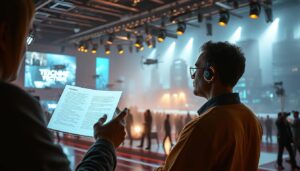
FAQ
How is AI already being applied in the film world?
Artificial intelligence is revolutionizing filmmaking. It assists in scriptwriting, casting, and the production of special effects. For instance, ScriptBook interprets screenplay structures. AI is applied by Pixar to enhance animation and visual effects.
What are some benefits of using AI in movie production?
AI accelerates and reduces the cost of filmmaking. AI assists studios in planning and forecasting the success of a film. AI software also aids in budgeting and scheduling.
Is there fear of AI taking over filmmakers’ jobs?
Yes, most filmmakers fear losing their jobs to AI. Although AI is able to assist in some work, it cannot substitute for the creativity and emotional input that humans infuse into storytelling.
How does AI impact audience engagement?
AI makes films more intimate by providing you with suggestions for content based on your likes. Netflix and Hulu employ algorithms to locate films that suit your preferences. It makes viewing movies more enjoyable.
What are the ethical implications of AI in filmmaking?
There are numerous ethical problems with AI in film. They range from privacy, bias, and ensuring content is diverse. The industry is developing guidelines to employ AI responsibly and maintain the human element in films.
How can traditional studios evolve to an AI-powered landscape?
Older studios must catch up with the times and embrace new technology. They must invest in AI, make decisions using data, and follow along with what audiences demand. This will make them pioneers in a transforming movie industry.
Will AI transform film-making, or is it going to destroy traditional techniques?
AI can improve filmmaking for the better by introducing new ideas and tools. But it also makes the traditional way of doing things obsolete. What is most important is finding that delicate balance between the new technology and keeping the art going.
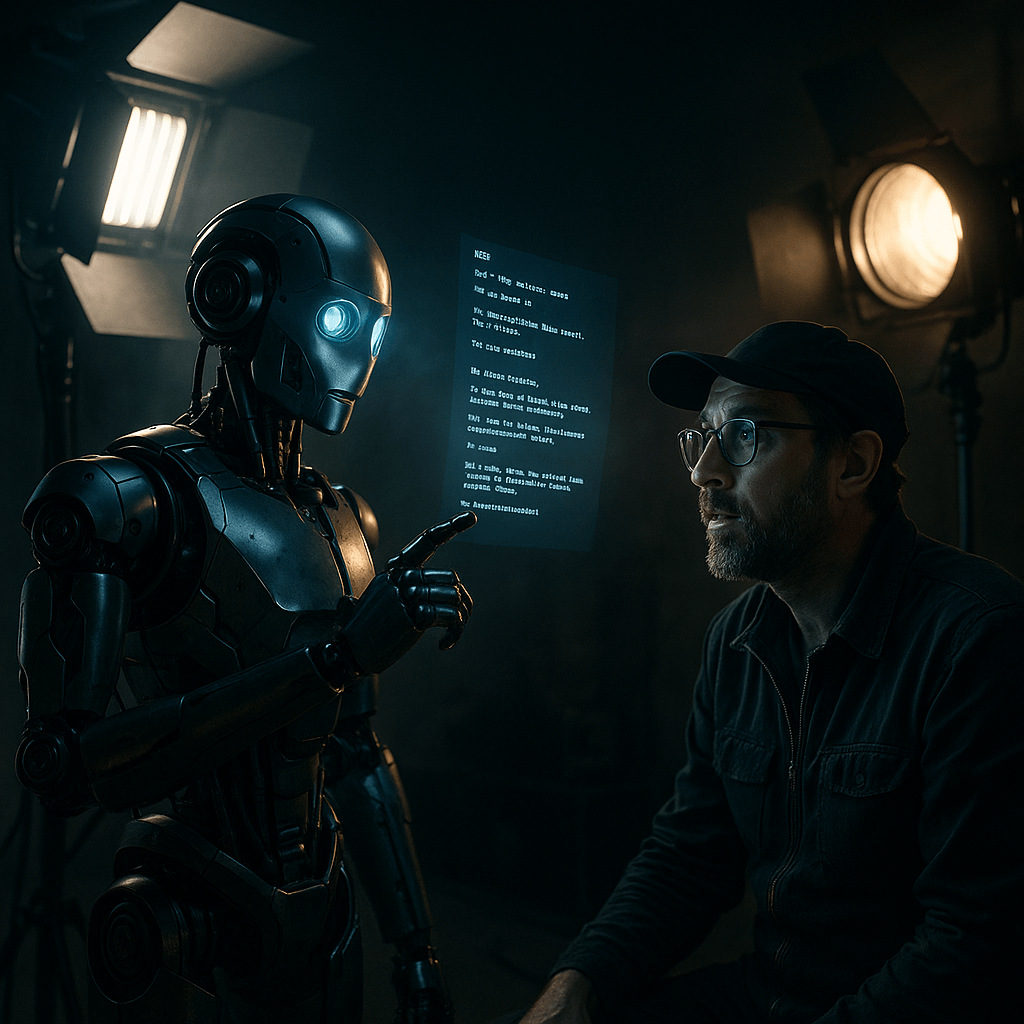
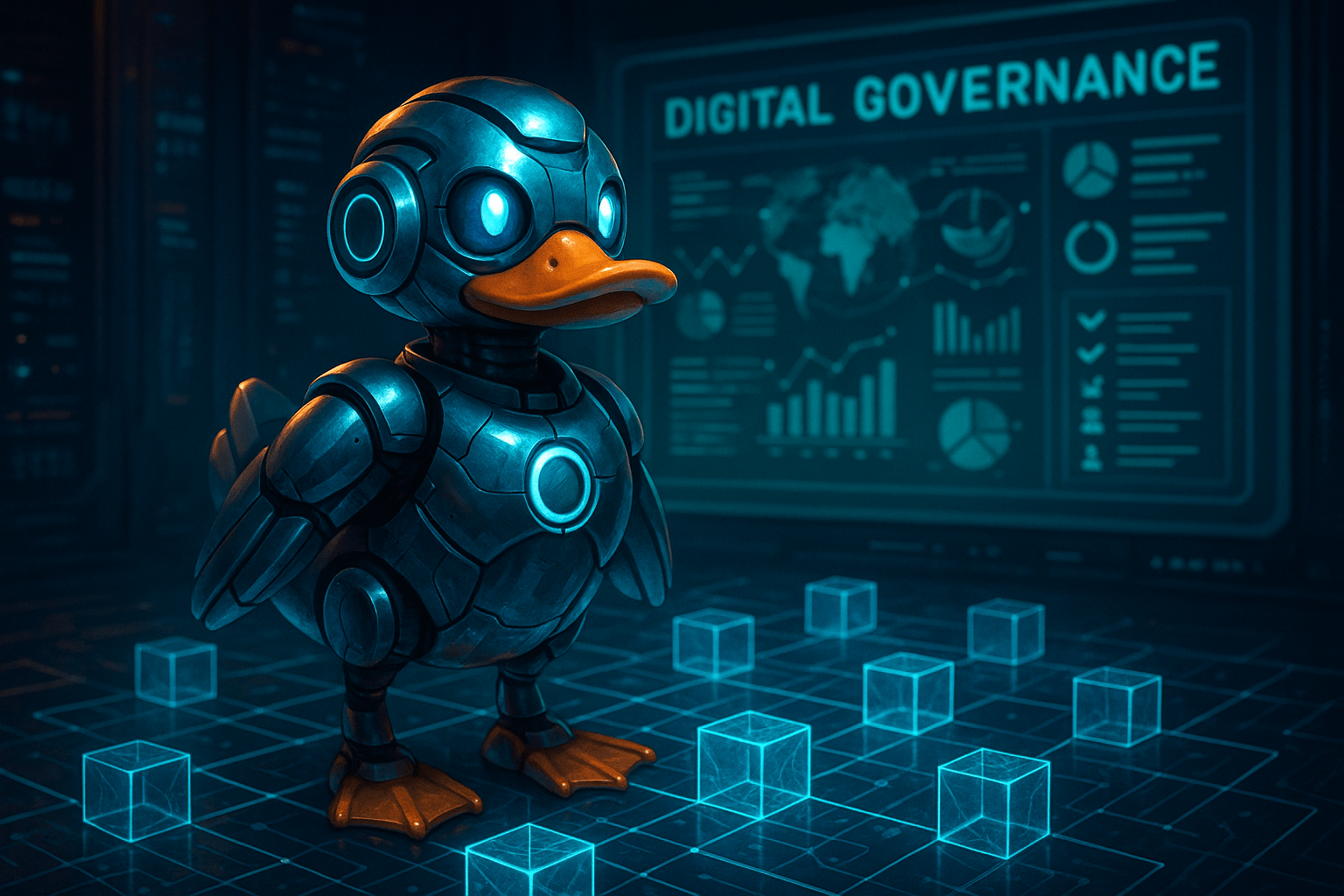
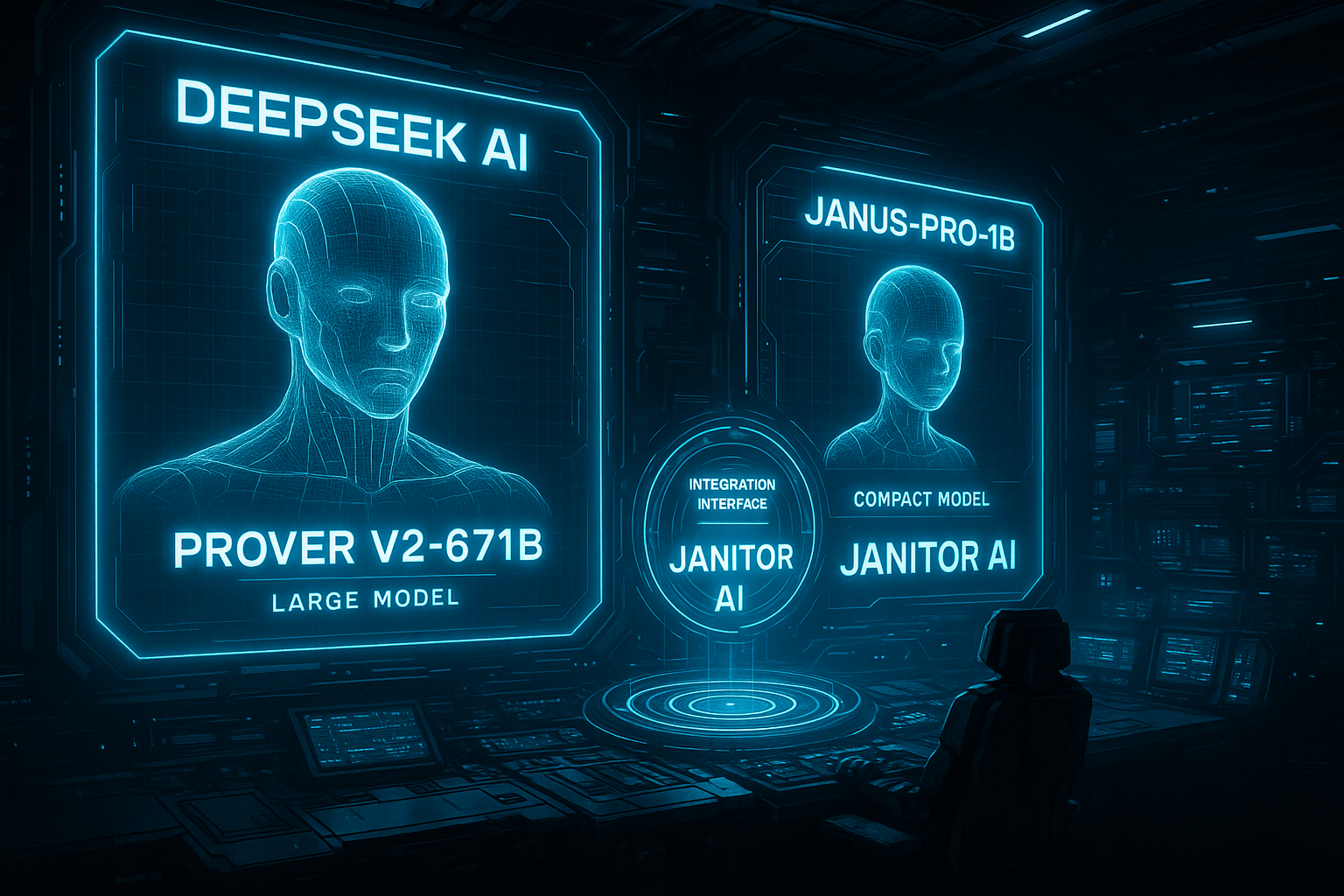
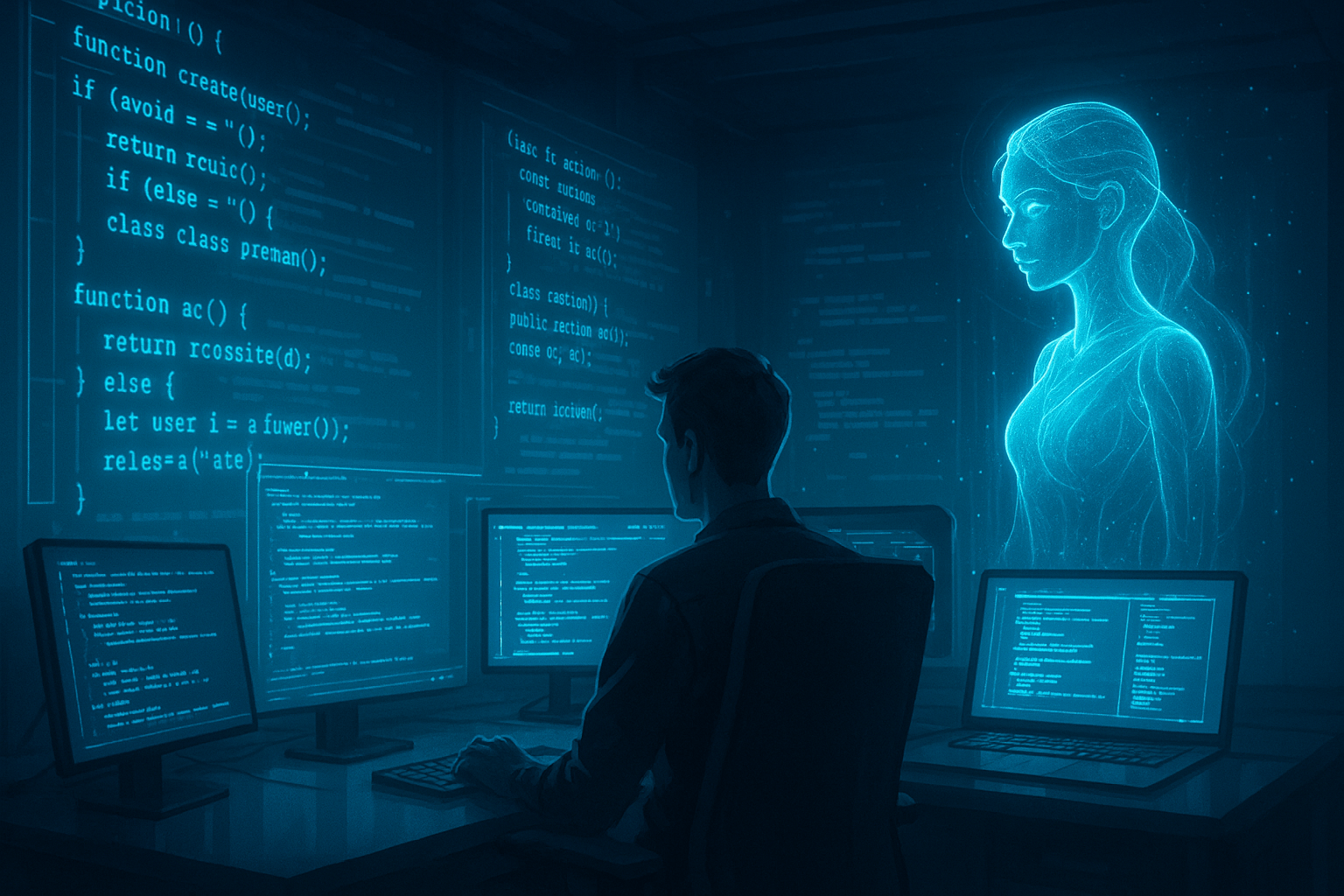
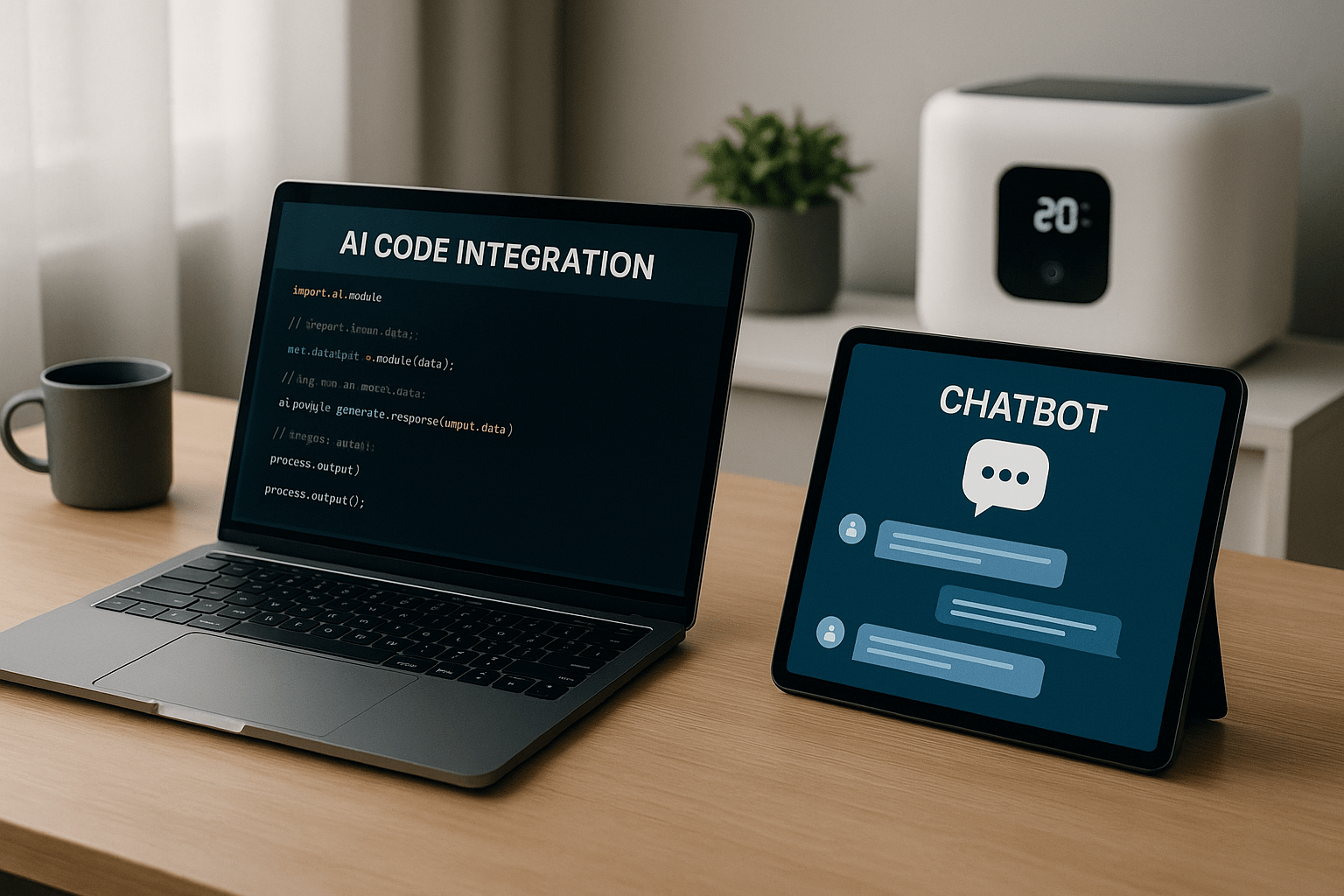
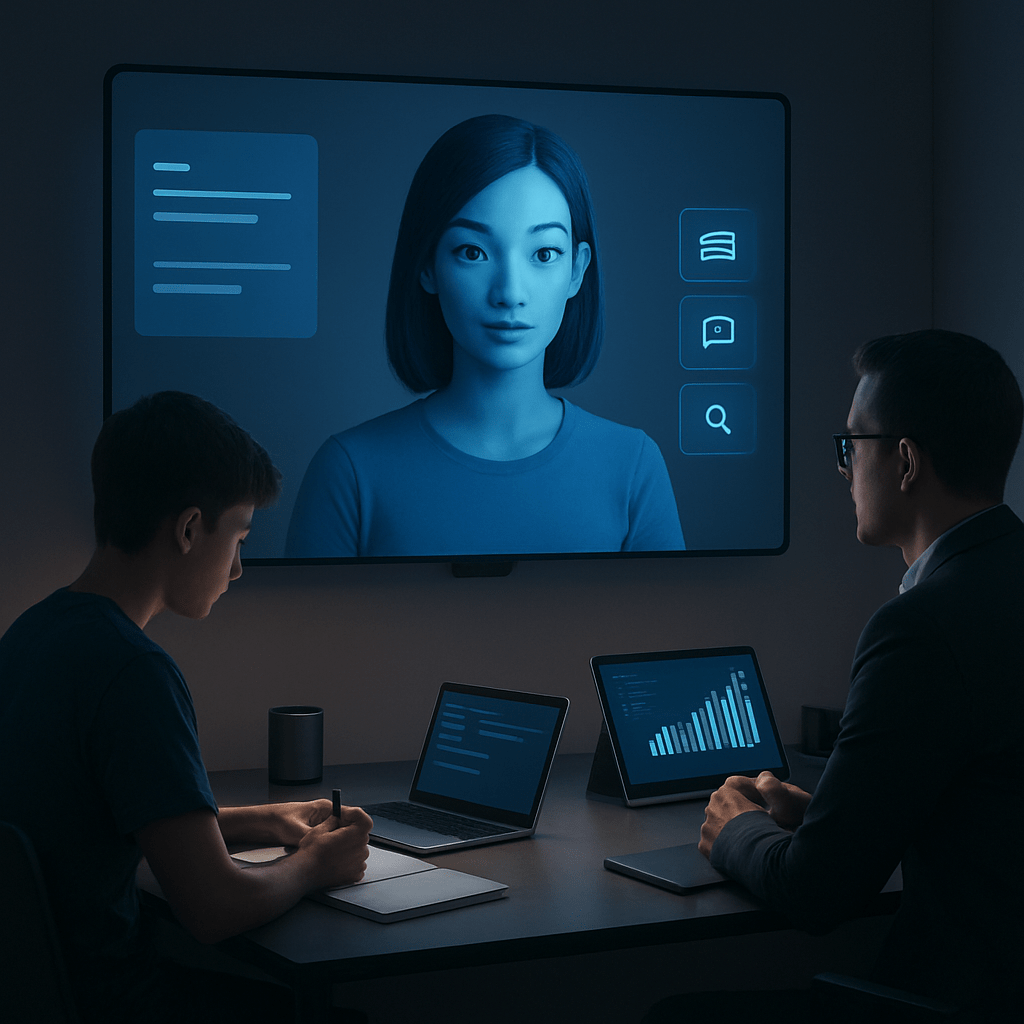

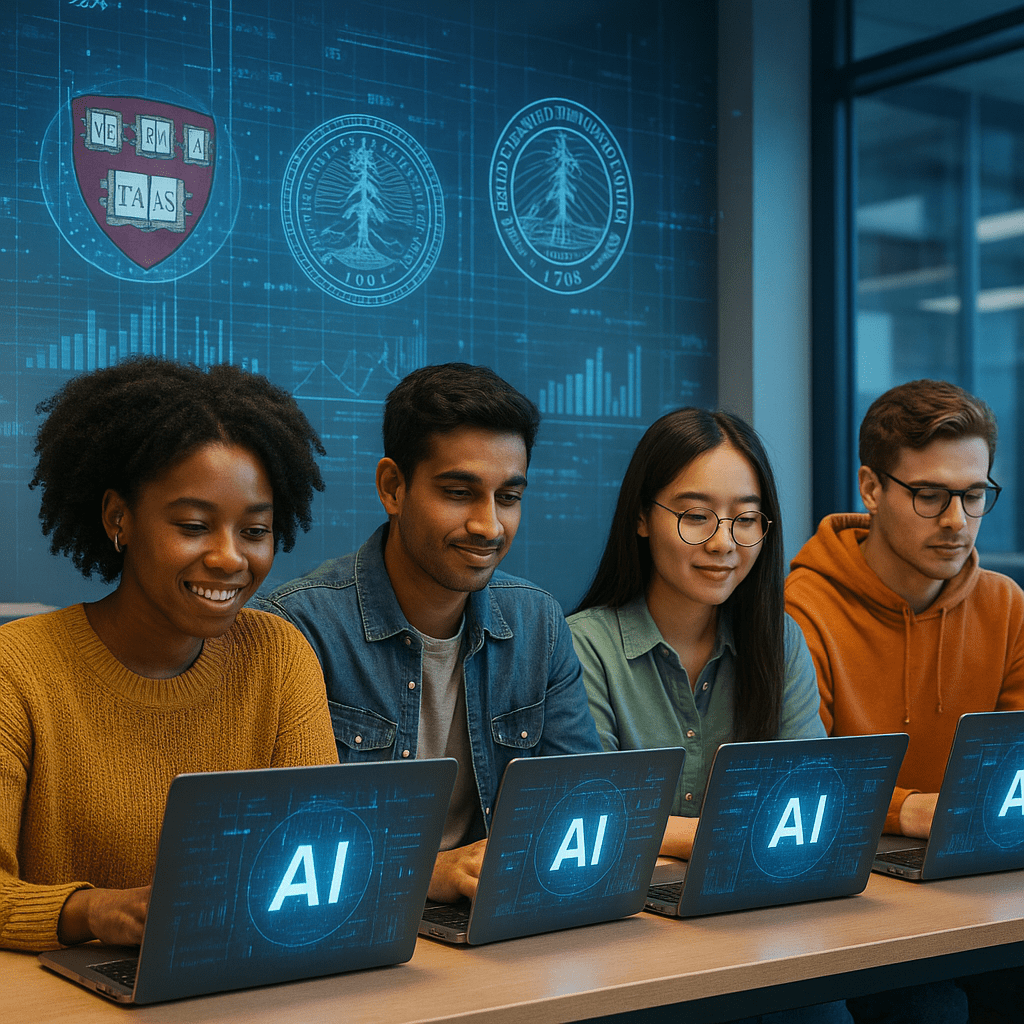
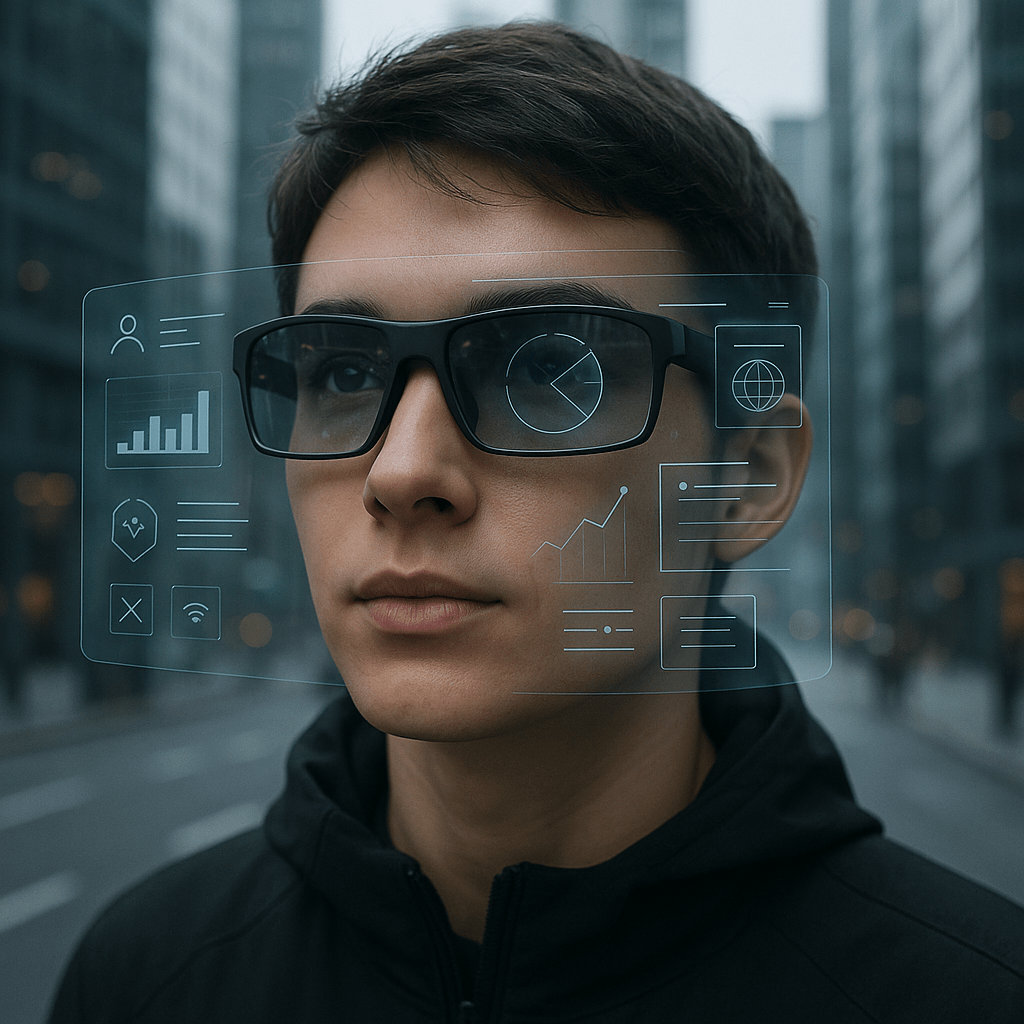
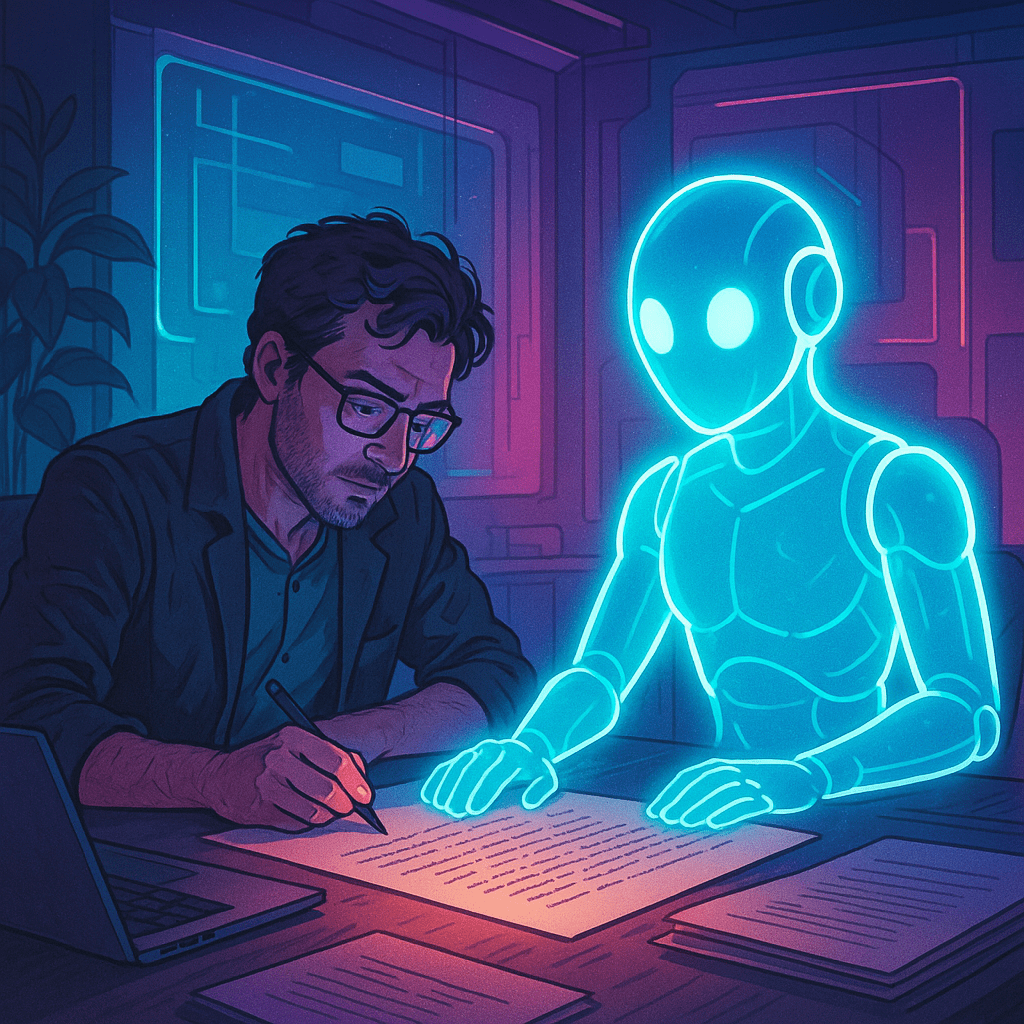
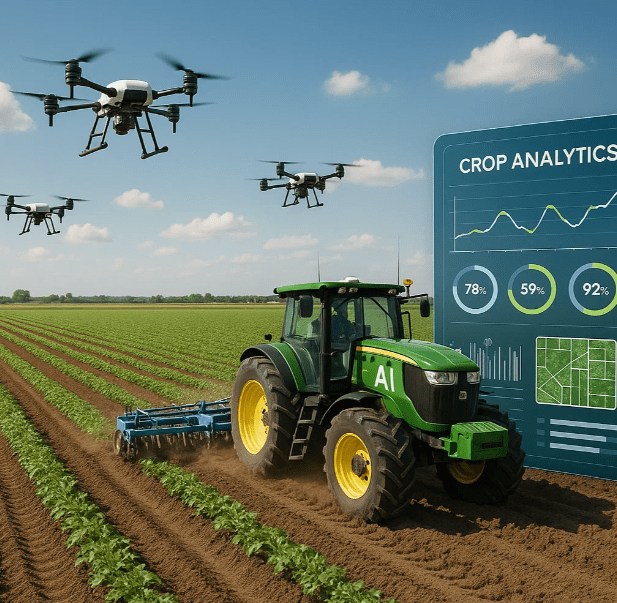
Leave a Reply